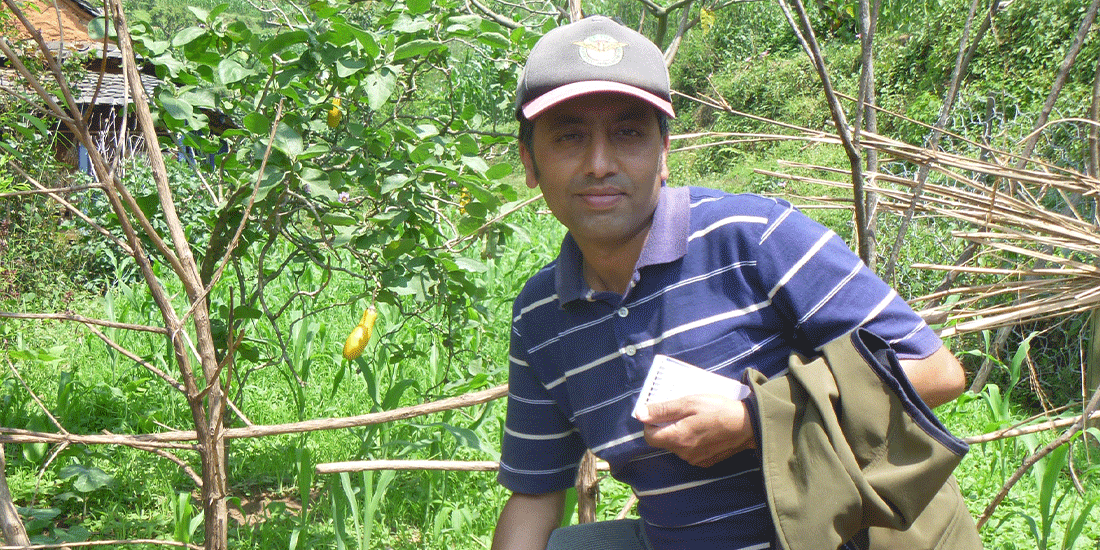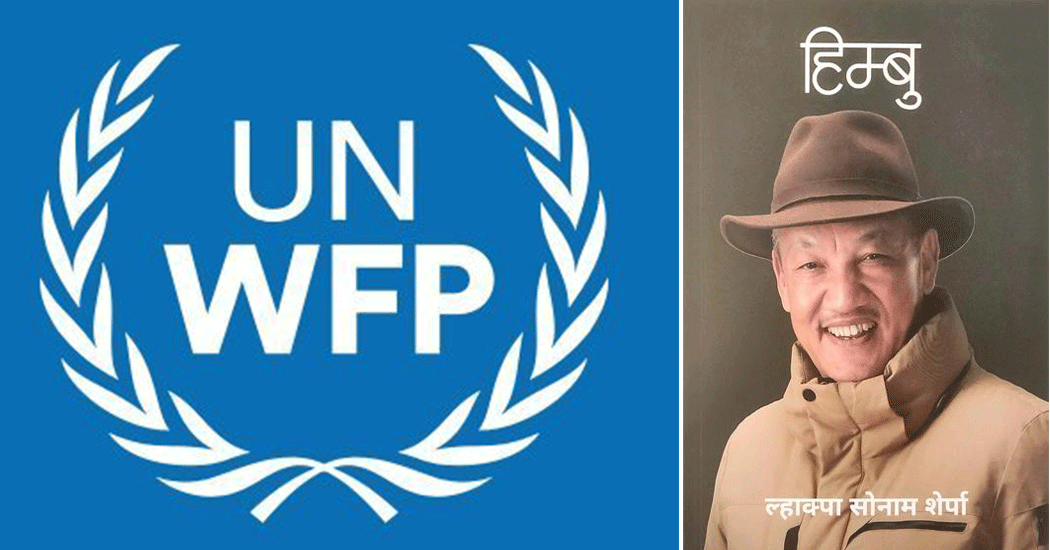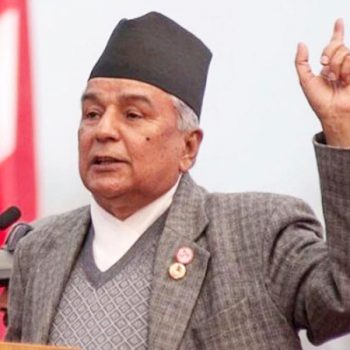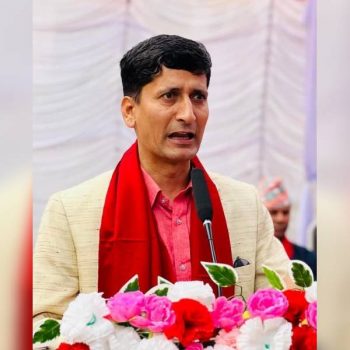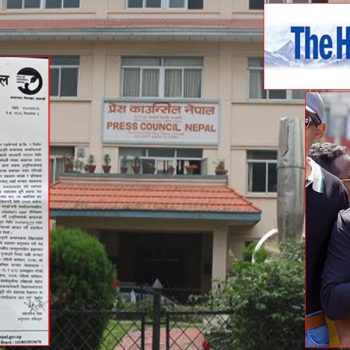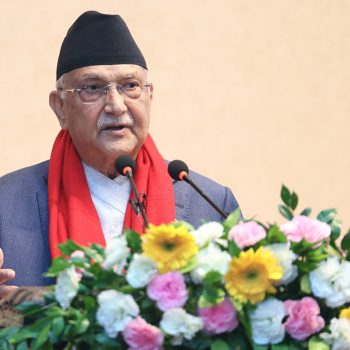We will provide internet access to every village of the country within a year: ISPAN President Sudhir Parajuli
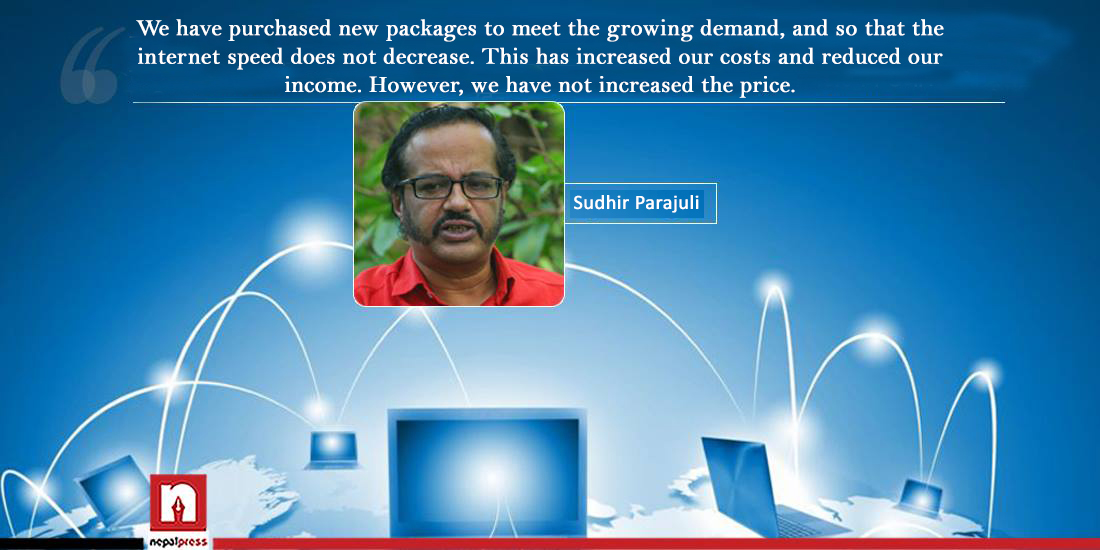
Internet use in Nepal has been growing at a high rate in recent years. The internet has become even more indispensable as people were locked inside their homes due to the lockdown imposed by the government due to the spread of COVID-19.
The government has declared ‘Digital Nepal’ and the payments of banks and financial institutions are gradually becoming digital. Payments of taxes, share transactions, electricity, and drinking water bills are now being done through digital mediums. Thus, the general public has been compelled to connect to the Internet.
This is also why there exists intense competition in this sector. There is competition among companies to sell affordable internet packages. However, customers are not satisfied with the quality of service they provide. Customers often complain about the speed of the Internet.
Sudhir Parajuli, President of ISPAN, a joint venture of internet service providers, says the quality of service cannot be maintained as long as there is unfair competition in terms of price. He says customers should be willing to pay a high price for high-quality services.
Parajuli, who is also the President of Subisu Net, one of the well-known internet service providers in Nepal, has claimed that internet service will be provided to every village in the country within a year. A conversation with him on various issues related to internet service in Nepal, presented on Nepal Talk:
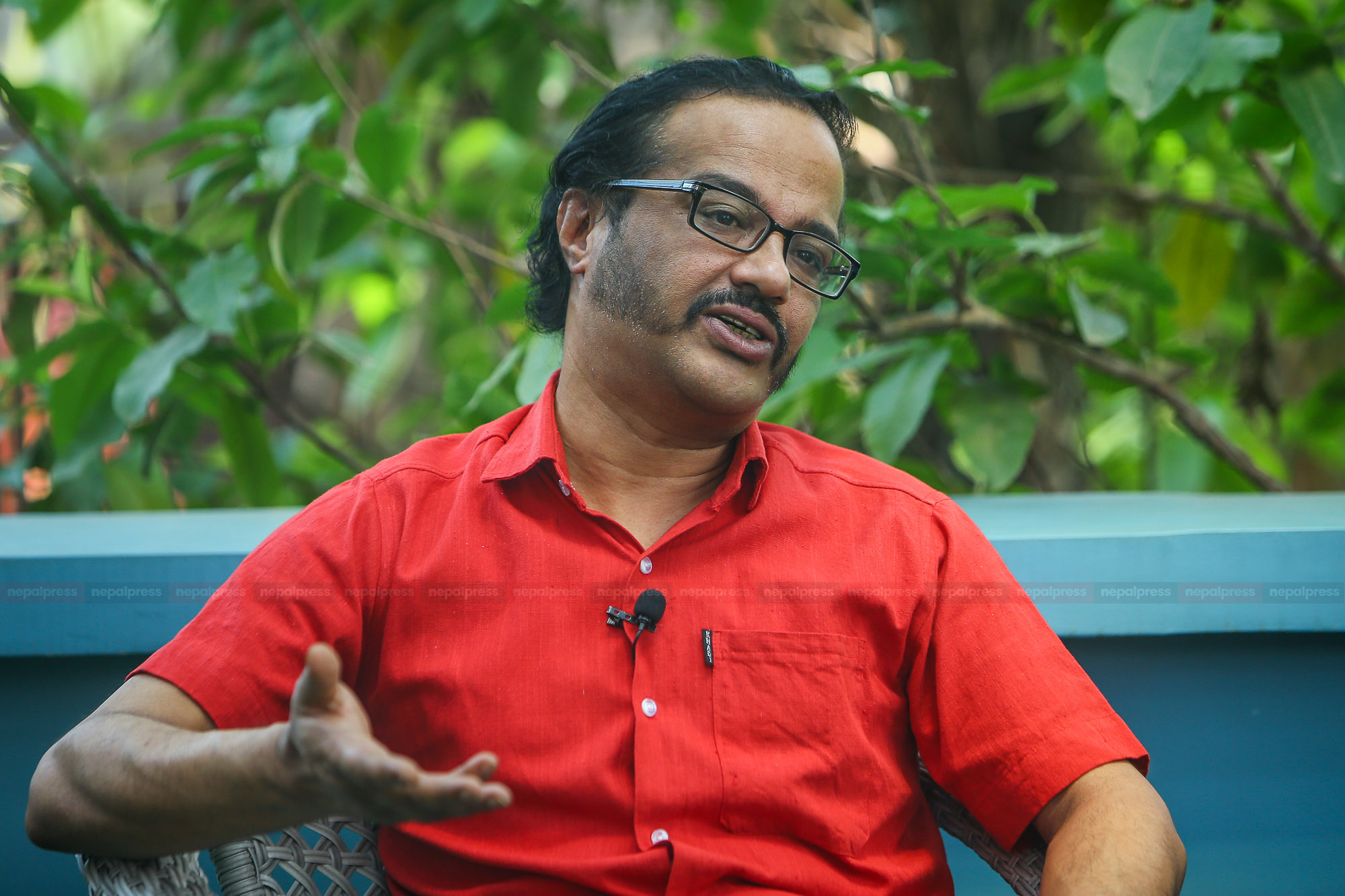
What were the demands of internet service providers in the budget of the coming fiscal year, and were they properly addressed?
The government is imposing high taxes on our Internet service providers (ISP providers). Nepal is the highest taxpayer on the internet in the world. The government levies 42% direct and 6% indirect taxes, of the 48% of tax levied on them.
10% tax when we bring internet from abroad, another 10% when ISP sells to NSP, 6% for royalty and RTP funds, and various other taxes are levied, which amount to 48%. We had suggested to the ministers and secretaries of the Ministry of Information and Communication and the Ministry of Finance that this rate should be reduced. We have also been suggesting to reduce the tax on the internet through forums of various programs.
He acknowledged that the tax was too high and promised to reduce it. So, we had high hopes on this budget. However, we are disappointed that the budget has not addressed our demands. However, we are still confident that the government will make a firm decision soon.
ISPs were still in operation when other areas were closed due to the prohibitory orders. Internet usage is also on the rise. Is it that the government is not interested in providing concessions to this sector as it is in better condition than other industries and businesses?
Internet users have not decreased, they have increased during the time of lockdown and prohibitory orders. However, older users used the Internet 30% more. During this period, ‘work from home’ became widespread and classes and education were done through the internet. Similarly, people with spare time also used the internet more. Earlier, the internet was used more in the morning and evening, but now the pressure is the same even in the afternoon.
We have purchased new packages to meet the growing demand, and so that the internet speed does not decrease. This has increased our costs and reduced our income. However, we have not increased the price. COVID-19 has increased the importance of the Internet and the government has put it on the list of essential items. However, this does not mean that we have generated enough revenue.
How much has the consumption of the internet increased due to the lockdown? Any statistics?
During last year’s lockdown, we had problems with the speed of the Internet. We did not have the experience in terms of lockdown before this and we didn’t think that internet usage would suddenly increase this way. At the time, we could not solve this problem by ordering equipment immediately.
We have expanded our capacity since the previous lockdown was reopened. Due to this, there is no complaint that the bandwidth of the internet is not enough, as in the previous lockdown. We were well prepared for the second wave of COVID-19.
Nowadays, consumption in the afternoon has increased by 30%. In the past, there was a demand for greater internet bandwidth in the morning and evening. Similarly, we had already purchased better internet, to facilitate online classes and work from home.
What is the tax on internet equipment?
15% tax has been levied on the wires brought to the homes. We have to pay 15% tax on routers and 10% tax on wiring.
These tax rates seem to be very high. Computers cannot be ‘intelligence devices’ without the Internet. Only 1% tax is levied on computer imports in order to increase usage, but it is ridiculous to hear about the much higher taxes levied on the internet.
Can you please explain how ISP providers distribute the internet to customers?
The Internet cannot be controlled by anyone. The internet is not something I produce. I buy it from others and sell it to consumers, and neither is the entity I am buying from producing it.
The Internet is a network of different servers. Some entities collect servers from all over the world. As Nepal is a landlocked country, we can get internet from our two neighboring countries, China and India. In India, the two service providers are Tata and Airtel, while in China, there are China Mobile and China Telecom. Due to geographical conditions, we have not been able to bring internet from North China.
Our dependence for the internet is on India. We buy internet from two Indian companies, Tata and Airtel. We buy 1 MBPS data from those companies for 5 dollars. This way, we connect the internet from India to our server and process it, put it on the router, and manage bandwidth.
Customers demand different speeds of the internet. We distribute the speed of the internet according to the demand of the customer through optical fiber, cable, etc.
You are also the President of ISPAN. What initiatives have you taken to manage the unorganized wires seen on the poles of roads and streets?
We have demanded the government to form an infrastructure company for wire management. The government is positive about this. With the formation of the infrastructure company, it can be believed that the unorganized wires will be managed properly.
Recently, CGNet under Chaudhary Group has introduced a scheme to provide 120 MBPS data at Rs. 999. How much of a threat do you feel when a new company offers such an affordable service?
New companies are coming up with new technology. We should not be threatened or run away from the competition because of this. We welcome them.
The Chaudhary Group is a large family. It may come with a big investment. If someone comes with a big investment, this will help make this sector systematic. We have taken it positively because large investors do their business in a responsible way.
When it comes to bandwidth, we also have attractive packages. Many believe CGNet also belongs to us. Speaking of old ISP companies, we are also offering a package of up to 100 MBPs at Rs. 1000. Some time ago, it was expensive to sell a package that also included television, but the price has become very cheap now.
Their technology is the same as ours. They have used optical fiber and the router has used Nokia. The technology is the same. Now, with the arrival of new companies, the competition is focused on price, which is what CGNet is aiming for. There is no problem with this.
Would this put pressure on you to cut prices too?
In Nepal, the average price of 1 MBPS is 5 dollars, while the price of 120 MBPS internet is 600 dollars, which is about 74 thousand rupees. When you sell a service of Rs 74,000 for Rs 1,000, the customers will definitely be curious and find out what you are doing. CG may have done the arithmetic when selling at 1,000 based on the number of customers sharing the internet, its consumption ratio, and so on. Our friends are now selling up to packages of up to Rs. 2000. This is CG’s ‘Introductory Offer’. Gradually, price adjustments will be made to cover for the losses.
The quality of internet service is still poor in Nepal. How can this be improved?
The provision of quality internet is not possible if we keep looking for very affordable services. We are among the countries in the world providing affordable internet services, even if the government imposes a 42% direct tax on the price of 5 dollars per MBPS. A report published by the International Telecommunication Union (ITU) in 2020 states that Nepal is one of the countries selling internet at the cheapest price. So, we have to pay a fair price if we want to maintain quality and get high-speed internet. Quality internet cannot be provided in the range of Rs. 200-300.
There are complaints that you have not provided the internet speed as demanded by the customers. What do you have to say about this?
I would like to request ISP customers not to run behind money by looking for cheap internet. First, the agreement given by the company must be studied carefully. We have not deceived anyone. We will provide the same service as signed in the agreement.
As already mentioned, the ISPs are selling the internet for Rs. 74,000 for Rs. 1,000. The old ISPs are also selling 60 MBPS for 2,000. Now think for yourself, how have you got 74 thousand and 60 thousand internet at a cheap rate? Your agreement may have a consumption ratio of 1:16 or 1:20.
This means that 20 people are sharing the internet that you are using. If all the sharing users do not use the internet, you will get the 60 or 120 MBPS internet for yourself. It will be shared by all, if used by everyone. This is what is written in the agreement, so how can you blame us for the internet not working properly or the speed being slow?
Corporate houses are buying this service at the rate of Rs 2,000 per MBPS. Those who want better internet speed should pay more. The service you get at Rs 1,000 cannot be better than this.
If you seek the same thing in the morning and at night, you will not get it because you have agreed to share. If you run at 1 am at night, you will get the high speed internet, as desired and requested.
You guys have been saying that you will provide internet of 120 MBPS speed at a price of up to Rs. 1000. How is the customer at fault?
The price setting is done by the market, not us. The customers are not worried about the quality, they are only looking for cheap services. That is why we are selling cheap internet, by reducing the quality of the internet. When the market is demanding silver, you can’t provide gold.
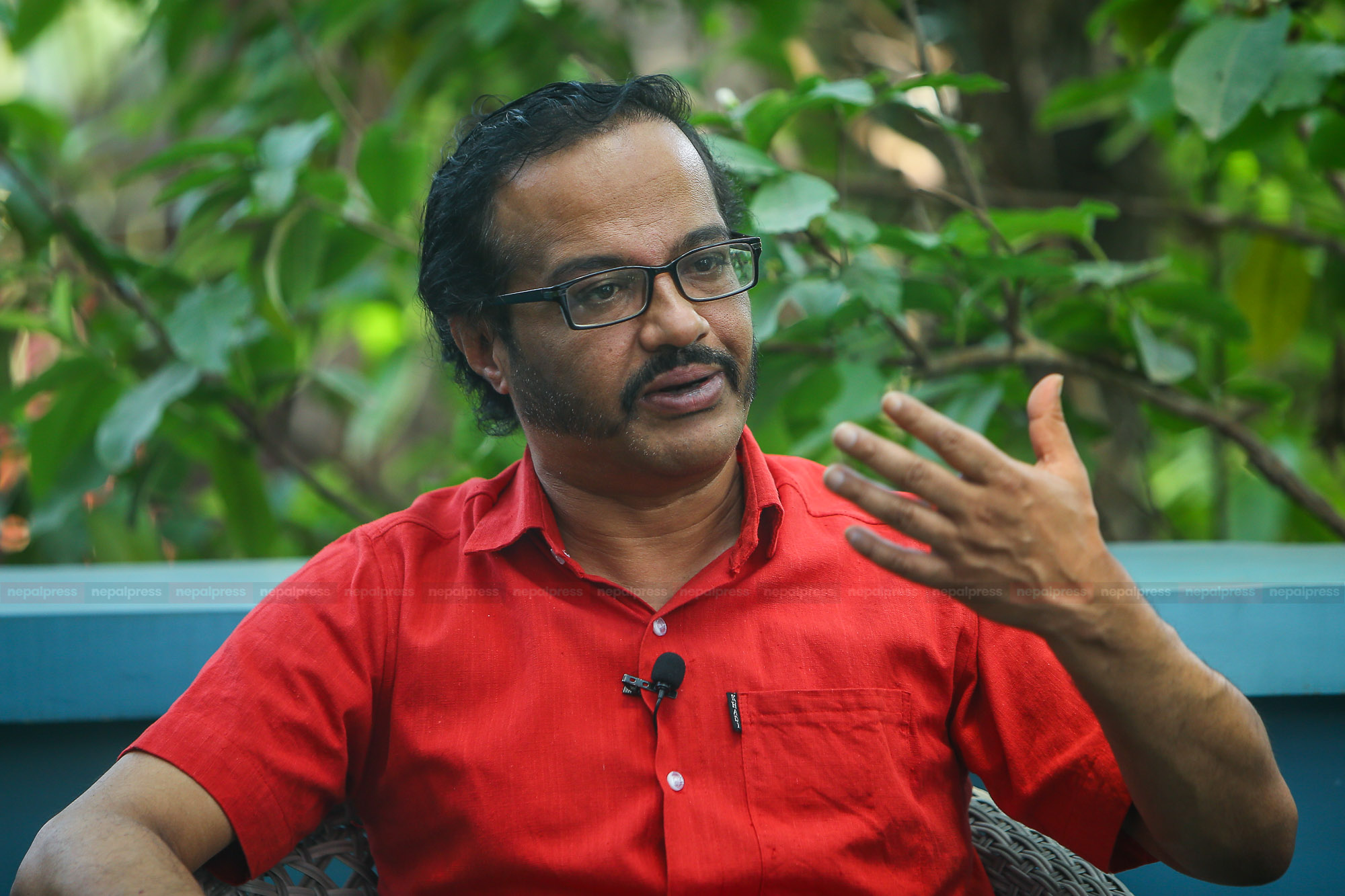
What role should all parties play in providing quality internet service?
We need to expand the availability of the Internet everywhere. Rather than focusing on just a few cities in Kathmandu, it is important to have internet access in remote parts of the country. With easy access to the Internet everywhere, we should then be able to maintain stability.
We should try to provide the internet regularly. We should be able to reach out to the poor and marginalized citizens. Today’s need is to make the internet accessible, stable and affordable. We will provide internet service to every village in Nepal within the next year. Currently, only 15% of the villages have internet access.
In terms of sustainability, we also have the infrastructure, but this has not been used properly. Only one ISP has reached. If there is a technical problem tomorrow, the work there will stop. So it is important to have at least two ISPs everywhere. Thus, the government had to play a role in this.
In order to provide cheap internet service, the government needs to think about reducing taxes, reducing internet purchase charges, and reducing the cost of routers and cables to consumers. We also need to do more in the coming days on how to provide digital devices to people living below the poverty line.
ISP companies are operating at a loss. What should be done for them to be able to make profits?
Currently, we need to focus on increasing ‘fixed broadband’ rather than making profits. At present, only 22% of households have access to fixed broadband. 78% of the houses have not been reached. If we can increase the number of customers in this way, our profits will increase tomorrow.
If the ISP service provider, which now has 100,000 customers, can reach 500,000 customers using this infrastructure, it will be possible to make a profit at the current level of human resources and cost. If we are able to increase the price by Rs 50 and reduce our input cost by Rs 50, we will surely make profits.




